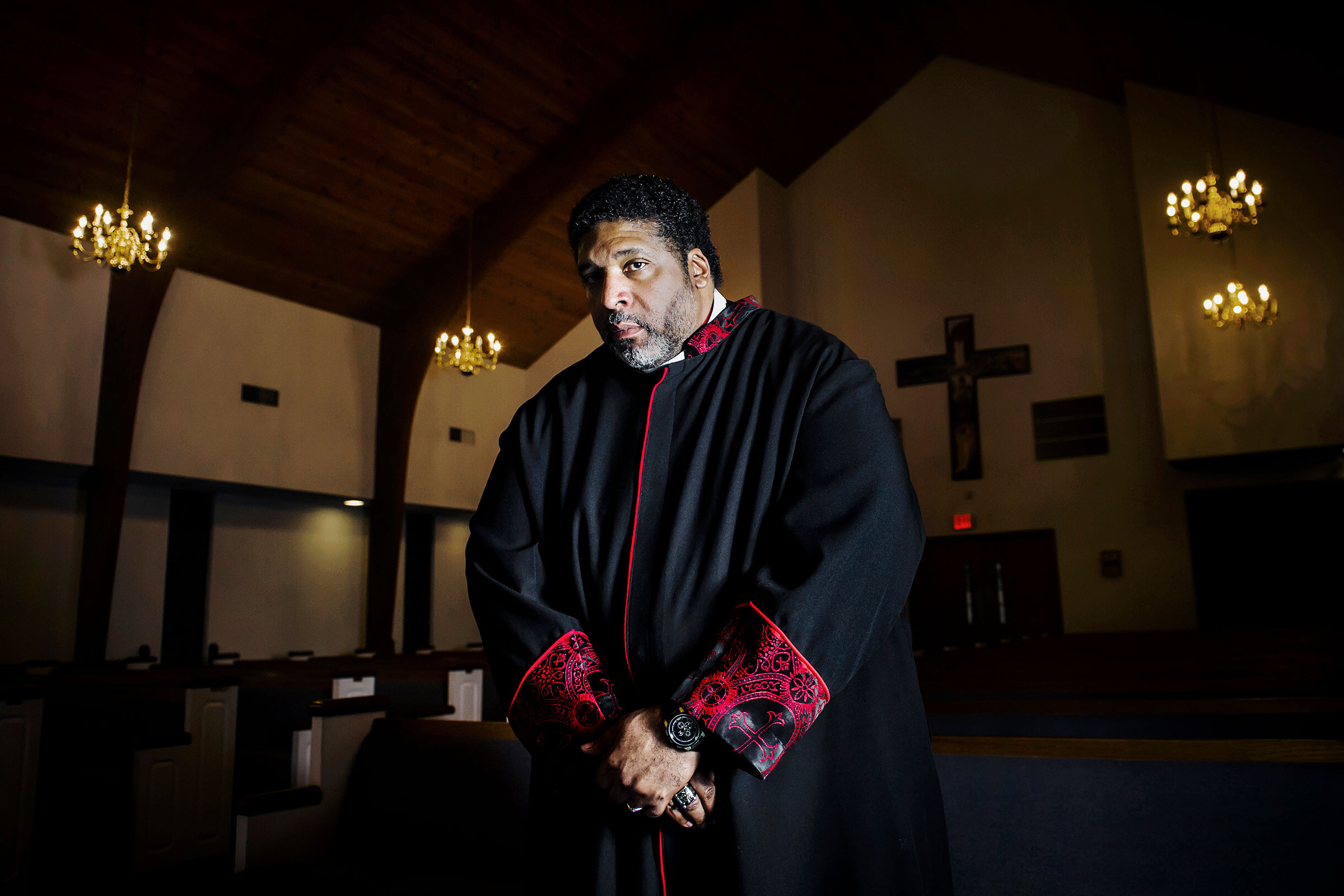
Drug overdoses kill more than 64,000 people per year, and are now the leading cause of death for Americans under 50. To document the nation’s devastating opioid crisis, TIME sent photographer James Nachtwey and deputy director of photography Paul Moakley across the country to gather stories from the frontlines of the epidemic. The result, The Opioid Diaries, is a visual record of a national emergency and a call to action.
Desmond Tutu, the prophetic voice of South Africa’s anti-apartheid movement, was right when he said we have “no future without forgiveness.” Americans cannot talk about forgiveness around the opioid crisis, however, without facing the ugly truth that we denied this grace to black and brown people in the War on Drugs. Yes, all people deserve a chance to heal from addiction. But both Republicans and Democrats failed to see this until the harsh drug laws they passed in the 1980s and 90s started impacting white people.
As a pastor, I know that every addiction reveals a place of hurt. As a patient who deals with excruciating pain from a crippling form of arthritis, I have compassion for any person who turns to drugs in an effort to alleviate any agony. But as a preacher in the public square, I must lift up the cry of the prophets. “Woe unto you who legislate evil,” Isaiah says, “and rob the poor of their rights.” Racial disparity in consequences for drug addiction is no accident. It is the direct result of public policy.
According to the NAACP, the incarceration rate for black Americans with drug charges is six times that of their white neighbors, despite the fact that black and white people use drugs at similar rates. As Michelle Alexander has argued, this disparity in our criminal justice system is a direct result of policy decisions made after the civil rights movement, when white people in all parts of America held onto political power by promising to be tough on “black” crime. The resulting devastation of black and brown communities is a 21st-century manifestation of America’s addiction to white supremacy.
More recent research by Boston University’s Astha Singhal suggests that impact of the opioid crisis on white communities may itself be a result of implicit racial bias. As doctors have tried to address the crisis by prescribing fewer opioids for pain relief, Singhal’s research found that African-Americans have been denied opioids at significantly higher rates. Ironically, more white people have become addicted to prescription pain killers because doctors have, however unconsciously, been more willing to believe white patients’ pain.
Last year the federal government invested $7.5 billion in prisons while Congressional leadership argued we cannot afford to offer basic access to healthcare in the world’s richest nation. By criminalizing addiction, we have chosen to invest in punishment rather than public health. Politicians who pass bills to fund opioid treatment programs while refusing to the reduce the mandatory minimum sentences that hundreds of thousands of black and brown people face are not practicing social forgiveness.
The opioid crisis reveals that systemic violence never just hurts one group of people. In fact, more white people are impacted by mass incarceration and the denial of Medicaid expansion, particularly in Southern states where poor whites and people of color have been pitted against one another for generations. Take Mashyla, a young white woman who has experienced homelessness in Washington State. Mashyla comes from a poor white community that has been ravaged by the opioid crisis because many people there haven’t known where else to turn for relief from the poverty they are experiencing. But Mashyla has joined faith leaders, anti-poverty activists and workers because, in her words, “when they threw out the ‘white trash,’ they forgot to burn it.” Her witness gives me hope that the healing we most need is in fact possible.
The forgiveness and social healing we most need is the unity of poor black, white and brown people to change the political culture in which addiction has been criminalized. It’s not enough to simply argue that we need a public health approach to the opioid crisis. We know that the forces behind our punitive justice system have far too much invested in maintaining power to change on their own. It is time to shift the moral narrative of this country.
Barber is President of Repairers of the Breach and co-chair of the Poor People’s Campaign: A National Call for Moral Revival. He is the author of The Third Reconstruction, with Jonathan Wilson-Hartgrove.
More Must-Reads from TIME
- Donald Trump Is TIME's 2024 Person of the Year
- Why We Chose Trump as Person of the Year
- Is Intermittent Fasting Good or Bad for You?
- The 100 Must-Read Books of 2024
- The 20 Best Christmas TV Episodes
- Column: If Optimism Feels Ridiculous Now, Try Hope
- The Future of Climate Action Is Trade Policy
- Merle Bombardieri Is Helping People Make the Baby Decision
Contact us at letters@time.com